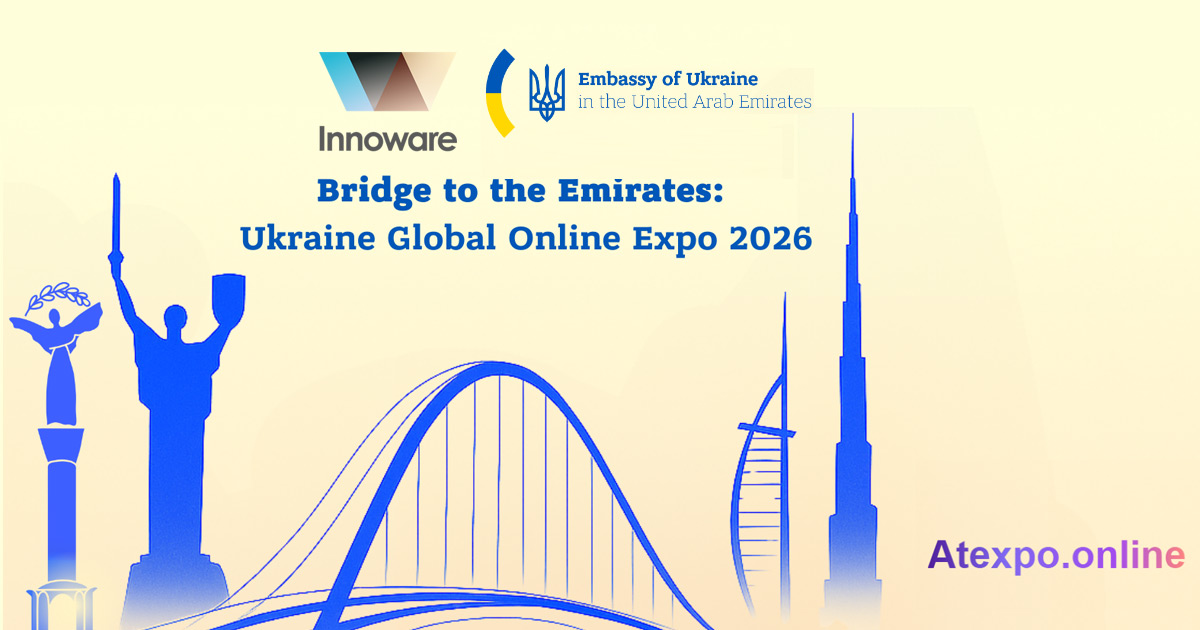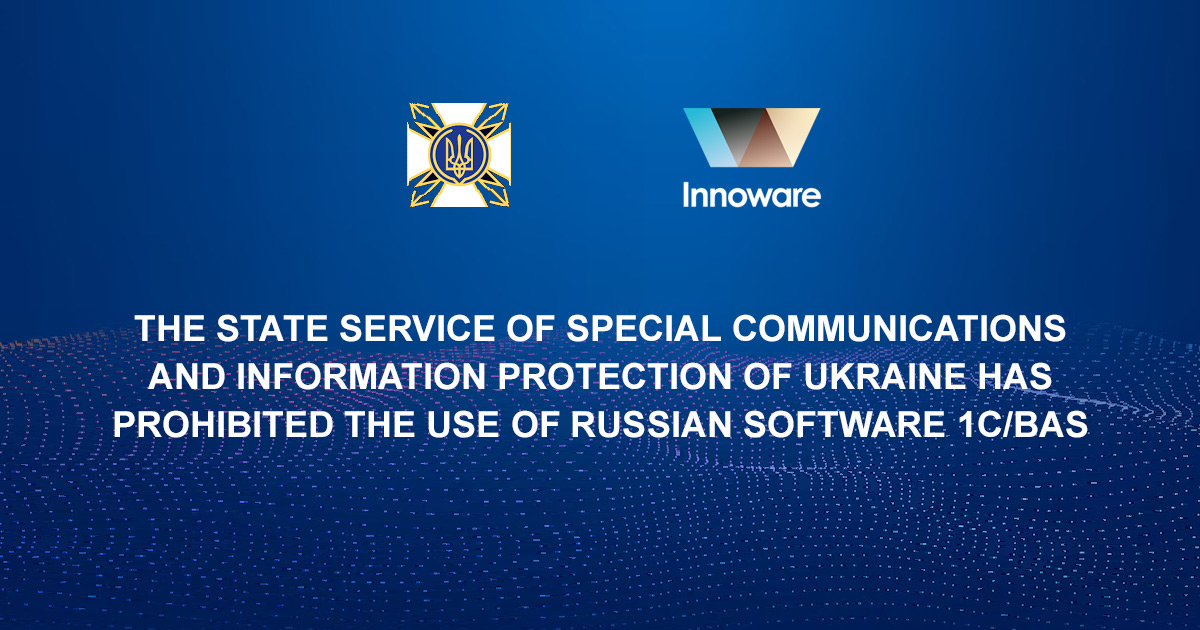
Investments that kill. How russian business is destroying the Ukrainian economy from within
April 2025
Russia continues its war against Ukraine, persisting in its attempts to fully occupy our country. The aggressor state had been preparing for armed confrontation for years, systematically weakening Ukraine on the economic, political and technological levels. In a new article for LIGA.net, Dmytro Popinako, CEO Innoware and an expert in the implementation of international enterprise management systems, explains how russia is destroying Ukrainian businesses, why the war has extended into cyberspace, and how domestic companies can not only protect themselves but also gain real technological advantages through the use of international software.
Russia has been pursuing a policy aimed at destroying Ukrainian enterprises for decades.
On March 23, 2025, another large-scale cyberattack ordered by the enemy took place. This time, Ukrzaliznytsia was hit by a cyberattack. Its online services were paralyzed for several days, and as of the first week of April, restoration work is still ongoing.
This incident highlights the importance of investing in cybersecurity to protect both Ukraine’s critical infrastructure and private companies. It should also serve as a strong reminder of the urgent need to abandon russian software and migrate to secure alternatives.
Russian economic influence: historical lessons
Russia has traditionally used economic pressure against Ukraine. In 2010, the «Kharkiv Agreements» granted a gas discount in exchange for extending the lease of the russian Black Sea Fleet base. Ukraine’s refusal to join the Eurasian Customs Union triggered a trade war, and in 2013, moscow tried to disrupt Ukraine’s EU association agreement by offering $15 billion in loans and gas preferences.
Russian companies acquired Ukrainian enterprises and drove them into crisis.
For example, the Mariupol Metallurgical Plant faced a 24.3% duty in 2002 after a russian anti-dumping investigation, while Oleg Deripaska’s RUSAL contributed to the decline of the Zaporizhzhia Aluminum Plant.
The same sad fate befell the Black Sea Shipyard in Mykolaiv. In the early 2000s, it was purchased by russian businessmen and destroyed to prevent Ukraine from building warships.
These examples demonstrate russia’s systematic policy aimed at undermining the Ukrainian economy.
The russian federation restricted access of Ukrainian goods to its own market and to the markets of the Customs Union countries, while buying up Ukrainian enterprises and driving them into decline.
A similar threat comes from the dominance of russian accounting and CRM systems, such as 1C, BAS, Bitrix24 and others, which can paralyze the operations of businesses, government institutions and entire industries. The use of russian software is part of a broader strategy of trade and cyber warfare against Ukraine.
It is important not to overlook the fact that russian investments in Ukraine are not aimed at economic development or the implementation of better business standards. Instead, they are used as a tool of political influence, a means of pressure and a method of destabilizing the country.
Cyber warfare as a new front of economic pressure
Today, russia uses software as a tool of control, extortion and espionage. The additional insidiousness of russian developers lies in their practice of disguising their programs as international products. In particular, the russian systems 1C, Bitrix24, and BAS are widely used in Ukraine:
- 1C stores financial data, customer databases and tax information.
- Bitrix24 stores data on sales and internal business processes.
- BAS presents itself as an international product, while retaining its russian roots, and has a 1C core.
These systems pose a threat to businesses, government institutions and entire sectors of the economy, as they can be used to block operations, steal data, and engage in economic sabotage.
How can businesses protect themselves?
Despite the widespread belief that abandoning russian systems is difficult, many Ukrainian companies have already successfully migrated to alternatives: Microsoft Dynamics 365, Bookkeeper, IT-Enterprise, Abona ERP, Creatio. In addition to enhanced security, this also supports the development of the domestic IT sector. You can choose your system based on your needs from the list provided by Opendatabot.
Modern ERP (accounting) and CRM systems are constantly evolving, integrating artificial intelligence to optimize business processes. Global leaders already offer solutions like Copilot, while russian providers are falling behind technologically, further isolating themselves and creating additional cyber threats.
Transformations are always challenging. Especially for complex structures like state apparatus or large businesses. However, changes are crucial. The more systematically the migration takes place, the quicker organizations experience development and growth because of these changes. There is no need to wait until the use of russian software is banned by law in one day.
The implementation of modern IT platforms provides businesses not only with technological advantages, but also ensures stability, partner trust and compliance with the requirements of global markets.
Despite the costs of integration, the price of dependence on the enemy is far higher than the costs of migration. It includes potential cyberattacks, the loss of competitiveness, and risks to the economy.
Refusing dangerous solutions is not only about cyber defense, but also about the country’s strategic independence in the field of technology and information security.
The original article is on LIGA.net
INNOWARE USA
501 Silverside Rd, Ste 105, # 4995,
Wilmington, Delaware, 19809-1376,
United States
Tel.: +1(302)4672024
E-mail: info@innoware.com
INNOWARE UAE
Premises 407-FZBA 055, 4th Floor, Sheikh Rashid Tower, Dubai World Trade Centre,
Dubai, United Arab Emirates
Tel.: +971588894591
E-mail: info@innoware.ae
INNOWARE UKRAINE
3, Sholudenka St., office 204 (Cubic BC)
Kyiv, Ukraine, 04116
Tel.: +380(44)4902220
E-mail: info@innoware.com


